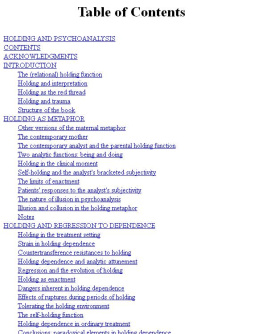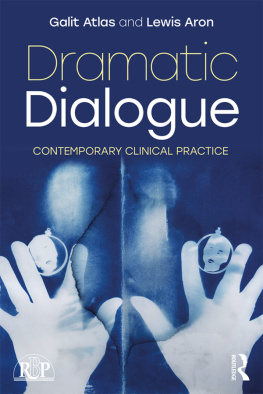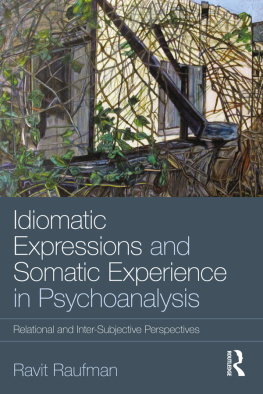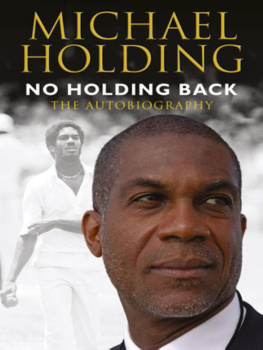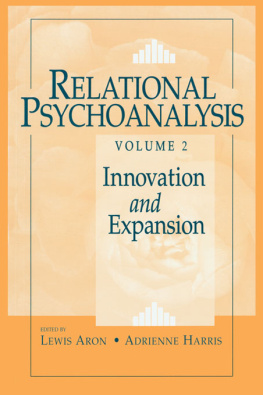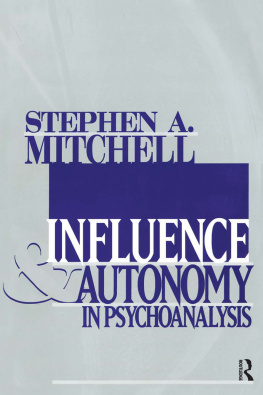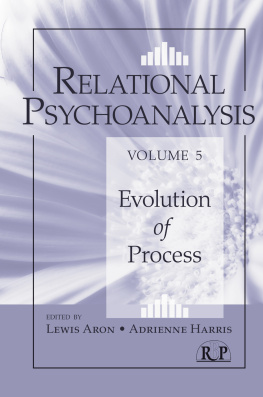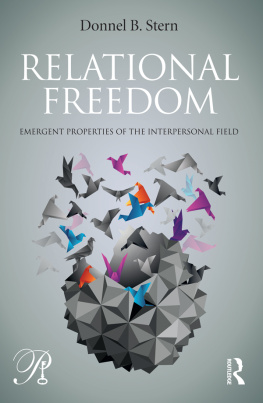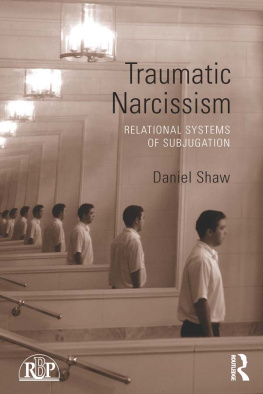Joyce Anne Slochower - Holding and Psychoanalysis, 2nd edition: A Relational Perspective
Here you can read online Joyce Anne Slochower - Holding and Psychoanalysis, 2nd edition: A Relational Perspective full text of the book (entire story) in english for free. Download pdf and epub, get meaning, cover and reviews about this ebook. year: 2013, publisher: Routledge, genre: Romance novel. Description of the work, (preface) as well as reviews are available. Best literature library LitArk.com created for fans of good reading and offers a wide selection of genres:
Romance novel
Science fiction
Adventure
Detective
Science
History
Home and family
Prose
Art
Politics
Computer
Non-fiction
Religion
Business
Children
Humor
Choose a favorite category and find really read worthwhile books. Enjoy immersion in the world of imagination, feel the emotions of the characters or learn something new for yourself, make an fascinating discovery.
- Book:Holding and Psychoanalysis, 2nd edition: A Relational Perspective
- Author:
- Publisher:Routledge
- Genre:
- Year:2013
- Rating:4 / 5
- Favourites:Add to favourites
- Your mark:
Holding and Psychoanalysis, 2nd edition: A Relational Perspective: summary, description and annotation
We offer to read an annotation, description, summary or preface (depends on what the author of the book "Holding and Psychoanalysis, 2nd edition: A Relational Perspective" wrote himself). If you haven't found the necessary information about the book — write in the comments, we will try to find it.
Is there a baby in the relational consulting room? How and when can/should we try to hold our patients? What happens to the analysts subjectivity when she tries to hold?
In Holding and Psychoanalysis: A Relational Perspective (second Edition), Joyce Slochower brings a contemporary relational framework to bear on Winnicotts notion of the holding environment. Revisiting the clinical impact and theoretical underpinnings of holding, Slochower explores its function in those moments when ordinary interpretive or interactive work cannot be tolerated. Slochower expands the holding construct beyond the needs of dependent patients by examining its therapeutic function across the clinical spectrum. Emphasizing holdings coconstructed nature, Slochower explores the contribution of both patient and analyst the holding moment.
This second Edition introduces new theoretical and clinical material, including four additional chapters. Two of these address holdings impact on the patients capacity to access, articulate and process affect states; the third moves outside the consulting room to explore how holding functions in acts of memorial ritual across the lifespan. A final chapter presents Slochowers latest ideas about holdings clinical function in buffering shame states.
Integrating Winnicotts seminal contributions with contemporary relational and feminist/psychoanalytic perspectives, Joyce Slochower addresses the therapeutic limitations of both interpretive and interactive clinical work. There are times, she argues, when patients cannot tolerate explicit evidence of the analysts separate presence and instead need a holding experience. Slochower conceptualizes holding within a relational frame that includes both deliberate and enacted elements. In her view, the analyst does not hold alone; patient and analyst each participate in the establishment of a co-constructed holding space. Slochower pays particular attention to the analysts experience during moments of holding, offering rich clinical vignettes that illustrate the complex struggle that holding entails. She also addresses the therapeutic limits of holding and invites the reader to consider the analysts contribution to these failures. Slochower locates the holding process within a broader clinical framework that involves the transition toward collaborationa move away from holding and into an explicitly intersubjective therapeutic frame.
Holding and Psychoanalysis offers a sophisticated integration of Winnicottian and relational thought that privileges the dynamic impact of holding moments on both patient and analyst. Thoroughly grounded in case examples, the book offers compelling clinical solutions to common therapeutic knots. Clearly written and carefully explicated, it will be an important addition to the libraries of psychoanalysts and psychoanalytic psychotherapists.
Joyce Anne Slochower: author's other books
Who wrote Holding and Psychoanalysis, 2nd edition: A Relational Perspective? Find out the surname, the name of the author of the book and a list of all author's works by series.

